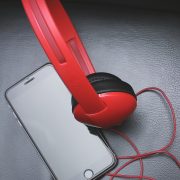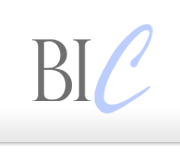Journey to Accessibility: A Case Study from Sydney University Press
 Sydney University Press is a not-for-profit, scholarly publisher of research-based books in several areas across the humanities and social sciences including animal studies, archaeology, Australian literary criticism, Indigenous music, as well as Australian classics. Providing access to as wide an audience as possible to our books is at the core of our mission, and we actually published some of our books in large-print format before ebooks arrived on the scene and we started producing EPUB files.
Sydney University Press is a not-for-profit, scholarly publisher of research-based books in several areas across the humanities and social sciences including animal studies, archaeology, Australian literary criticism, Indigenous music, as well as Australian classics. Providing access to as wide an audience as possible to our books is at the core of our mission, and we actually published some of our books in large-print format before ebooks arrived on the scene and we started producing EPUB files.
From the beginning, we were really keen on producing ebooks in-house and we reviewed various platforms and XML workflows. Our search for the best solution took place before the option of exporting an EPUB file from InDesign was available. Eventually, we adopted an XHTML-based digital publishing platform from Infogrid Pacific, which allows us to produce files for print and digital delivery from a single source file. We also aspired to follow best practice in ebook production. Some of the best-practice methods were driven by technology: we had to carefully format and style our manuscripts before uploading them into the platform, which resulted in well-structured content. Also, early on we incorporated the inclusion of alt text into our publishing workflow. At first it was added to each image file at the very end of the production process just before the EPUB file went through quality assurance testing.
As we were creating alt text ourselves, it was causing delays in the ebook release. We reviewed our editorial workflows and decided to, first of all, ask our authors to provide alt text (they are best placed to do it) and, second, embed it in the files earlier in the publishing process, so that all we have to do is to test the EPUB at the end.
We have included the need to provide alternative image descriptions in our author guidelines. In fact, we went a step further recently and now our
authors are contractually obliged to provide alt text as part of the manuscript delivery
and we provide detailed guidelines and examples to facilitate that process.
We thought that we were doing great, but we were, in fact, skipping an important stage—testing the accessibility of our books. We didn’t know how to do it. In 2018 we became involved in the Australian Inclusive Publishing Initiative (AIPI). The aim of this initiative, established in 2016, has been to identify key challenges to the implementation of accessibility standards, share best practice and innovative solutions to ensure the publishing sector meets the needs of Australians who are blind or vision impaired, and comply with the Marrakesh Treaty. Our involvement turned out to be a game changer. Sonali Marathe from the Royal Institute for Blind and Deaf Children tested a couple of our EPUB files and provided us with invaluable feedback. Our EPUB files were technically good, but we were missing a crucial step—adding accessibility metadata! This was easily rectified. We also learned that our EPUB 3 files conformed to the level A success criteria of the Web Content Accessibility Guidelines (WCAG) 2.0 specifications. And that we could do better.
This is when our collaborators from Infogrid Pacific stepped in. They incorporated the ARIA attributes into the XHTML workflow and our EPUB 3 files are now WCAG 2.0 Level AA compliant, which is really exciting. We have also embedded accessibility testing into our workflow, which has been much easier with the recent release of the Ace by DAISY app. In January 2020, Sydney University Press became a signatory of the Accessible Books Consortium’s Charter for Accessible Publishing. We are committed to further improving the accessibility of our books (our PDF files need work, for example) and fine-tuning our publishing workflows so that the implementation of accessibility standards is efficient and effective.
We will also continue to support the work of AIPI and share our accessibility experiences with others. Lucy Greco, Web Accessibility Evangelist from UC Berkeley, was cited in a 2018 article in Learned Publishing as saying,
Accessibility does not happen in a vacuum.
Working together makes things happen.
This article was kindly submitted by Dr Agata Mrva-Montoya, Degree Director for the Master of Publishing program at The University of Sydney.





